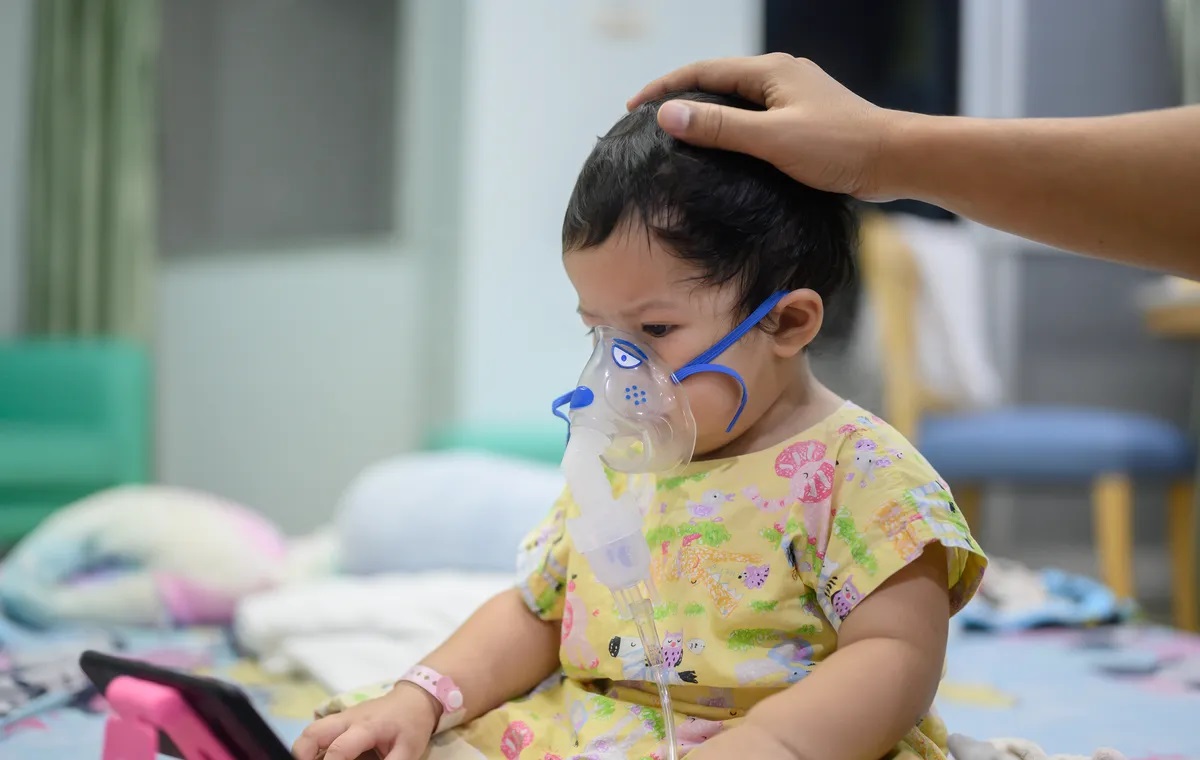Whooping cough, a highly contagious respiratory infection also known as ‘pertussis’, is making an alarming reappearance around the world. It is more common in young children and infants and can possibly be fatal.
The bacteria bordetella pertussis in the Whooping cough causes the infection, which spreads primarily through respiratory droplets.
Numerous nations have reported outbreaks, including China, the Philippines, Thailand, the Czech Republic, the Netherlands, the United States, and the United Kingdom.
China recorded a more than 20-fold increase in whooping cough cases in January and February compared to the same time last year.
After confirming 32,380 cases and 13 deaths, Chinese authorities cautioned that it is a leading cause of death among newborns and young children worldwide. However, whooping cough can afflict people of all ages as their immunity deteriorates. The rising number of infections has been attributed to a deterioration in the vaccine’s long-term effectiveness in China.
According to researchers, another possible explanation for the rise in pertussis cases during the previous two decades is the influence of outdoor air pollution in China.
It may start like a regular cold, but the coughing might linger weeks or months. The disease has a cyclical rise every three to five years, but cases have been increasing for more than two decades.
The bacteria that causes whooping cough appears to have changed, especially in Australia. The country is experiencing its most severe outbreak since 2013, with 2,799 cases reported in the first three months of 2024.
Similarly, Spain had an epidemic of 8,200 cases by March 2024, and the Czech Republic reported the highest number of infections in over 70 years, with over 6,300 this year.
WHO Warns Over Whopping Cough
Children should receive the DTP vaccination, which is a family of combination immunizations that protect against three infectious diseases: diphtheria, pertussis, and tetanus. Adults can receive the Tdap vaccine.
According to the World Health Organisation Pertussis, sometimes known as whooping cough, is a highly contagious bacterial infection of the respiratory tract. It mainly affects newborns and young children. It spreads easily from person to person, primarily by droplets.
In 2022, there were over 62 500 cases of pertussis worldwide, with approximately 39 000 cases reported in the Western Pacific region. Immunization can help prevent pertussis. In 2022, the Western Pacific Region had 93% coverage with three doses of diphtheria, tetanus, and pertussis vaccine.
Symptoms
Bordetella pertussis is the bacteria that causes pertussis. Pertussis spreads easily between people, primarily by droplets produced by coughing or sneezing. The disease is especially hazardous in infants, and it is a leading cause of illness and mortality in this age range.
The earliest symptoms come 7-10 days after infection and include a minor fever, runny nose, and cough, which usually progresses to a paroxysmal cough followed by a whooping noise. Pneumonia is a somewhat common consequence, but convulsions and brain illness are rare.
People with pertussis are most contagious for about 3 weeks after the cough starts, and many children who get pertussis have coughing fits that last 4 to 8 weeks. Antibiotics are used to treat infections.
Prevention
Immunization is the most effective strategy to avoid pertussis. The three-dose primary series diphtheria-tetanus-pertussis (DTP3) immunizations lower the risk of severe pertussis in infants. By 2022, 93% of the target population in the Western Pacific Region had received the recommended three doses of the DTP-containing vaccination during infancy.
WHO recommends giving the first dosage as early as 6 weeks of age, with following doses given 4-8 weeks apart at ages 10-14 weeks and 14-18 weeks. A booster dose is advised, ideally in the second year of life. Based on local epidemiology, more booster doses may be required later in life.
Vaccination of pregnant women is useful in preventing disease in infants who are too young to receive vaccination. In countries or situations with high or increasing newborn morbidity/mortality from pertussis, national programmes may consider immunizing pregnant women with a pertussis-containing vaccine in addition to standard primary infant pertussis vaccinations.






